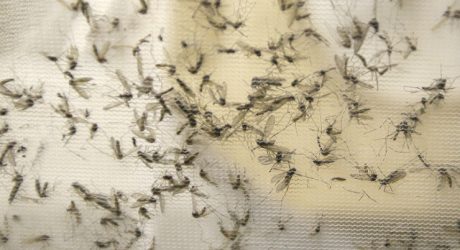The Cayman Islands Mosquito Research and Control Unit (MRCU), in partnership with the British biotech company Oxitec, will release genetically engineered male mosquitoes across Grand Cayman in the latest initiative to suppress the population of the Aedes aegypti mosquito that spreads several viruses, including Zika.
In March, the World Health Organization (WHO) recommended pilot deployment of the modified insects because of the Zika outbreak and after the US Food and Drug Administration’s (FDA) preliminary findings that there were no significant impacts during a trial in the Florida Keys.
MRCU director Dr Bill Petrie said that the decision to deploy the “Oxitec solution” came after the success of the peer-reviewed trial.
“We believe this environmentally friendly tool can greatly reduce the population of Aedes aegypti and has the potential to eliminate it from Grand Cayman,” he said.
MRCU performed the world’s first trial with Oxitec’s OX513A self-limiting mosquito – a genetically engineered, non-biting male that mates with disease-transmitting wild Aedes aegypti females – which officials claimed successfully reduced the target mosquito population by 96 percent.
Chief officer in the Cayman health ministry, Jennifer Ahearn, said: “During the time that we have been planning this project it has unfortunately become all the more urgent, with first chikungunya and now Zika threatening Cayman, the Caribbean and the Americas.
“Fighting the Aedes aegypti vector and potentially eliminating it from the Cayman Islands, is the surest way to protect our residents and tourists from the dengue, Zika and chikungunya viruses.”
The first phase of the project will include a series of activities to inform the community about the programme. Over two months, Oxitec and MRCU employees will provide information to local residents about the programme, how the solution works and why it is effective.
“Oxitec is very proud of our continuing partnership with MRCU. We have benefited greatly from their expertise both for the original suppression trial and in the process of preparing for the current project,” said Glen Slade, head of business development at Oxitec.
“The first trial proved that this approach works, and now we have the opportunity to help protect more people from this mosquito.
The project manager from Oxitec, Dr Renaud Lacroix, noted: “Before we release our mosquitoes, which we refer to as ‘Friendly Aedes aegypti,’ it is important to explain that the males do not bite, do not transmit diseases and do not persist in the environment.”
“Our scientists and staff are delighted to talk about this programme, and will be available to answer questions,” he added.
Phase two of the project will be the deployment of the ‘Oxitec solution’ to treat an area with about 1,800 residents in West Bay. An equivalent area without Oxitec treatment will be used for comparison.
Subject to appropriate approvals and funding, the ultimate goal of the programme is to expand from the northwest end of Grand Cayman, where West Bay is located, right across the rest of the island. (Caribbean 360)














